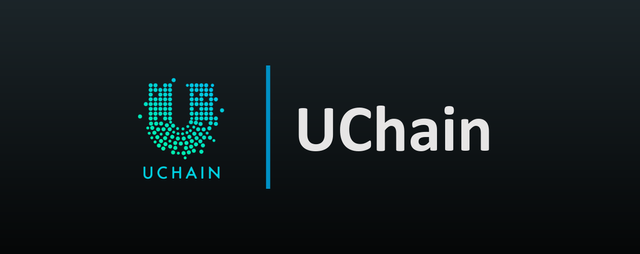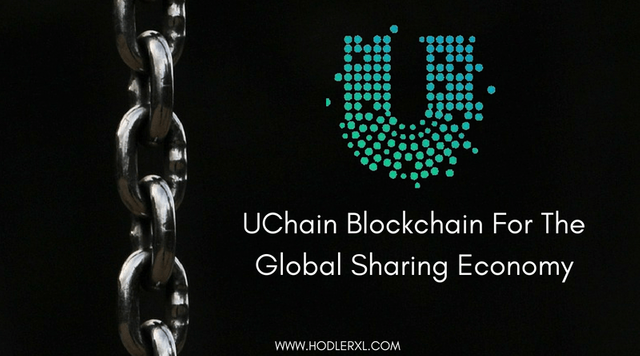Current sharing economy participants aren’t secure, Is Uchain the solution?
When the financial crisis of 2007-2008 hit, millions of people felt the crunch, especially with their wallets. Most people started looking for extra ways to earn more money. So, when companies like Uber and Airbnb were created, they were God sent. By giving people a platform and a ready audience to let you earn money for leasing out any extra resources they had available (Airbnb for the extra rooms in your home, Uber - for the free seats in your vehicle), a new type of industry was born and because of other benefits associated with it such as, lower carbon footprints, social interactions and more convenience the sharing economy took off and hasn't shown any signs of slowing down.
However as more and more people began to jump on the wagon, cracks started to appear. Soon enough people started to realize hey, these things can get expensive and also how is all my data used. Is it secure? This situation only got worse after various data leakage scandals were introduced to the public. Uchain was born out of this need. To solve a problem many people hadn't even realized they had.

What is Uchain exactly?
Uchain is in short terms a decentralized blockchain network that is primarily catered for the sharing economy, thanks to Uchain, individuals or startups can easily design and develop entire platforms, issue their own branded tokens and hand out content to users freely without ever worrying about middlemen and the high fees attached to them.
Enough talk, what problem does Uchain solve exactly and how will it do it?
Uchain solves two massive problems: High costs of transactions and Breaches of privacy.
Making the customer happy.

Startups like Airbnb have also contributed to increases in prices within property markets, for example, San Francisco has become super expensive to live in thanks to a sudden influx of vacation cribs and rentals which end up exceeding the city's already scarce housing.
On a more personal level, high operational costs, taxes, and profiteering are just some of the factors that make 'centralized' participants of the sharing economy expensive. All the participants work on a commission-based model whereby they get a cut every time a successful transaction is complete. Unfortunately, these middlemen are super expensive with some running upwards of 25% of the entire transaction. Building on blockchain Uchain can guarantee the service providers and service users get all the benefits.
To make this happen the platform uses a model known as dependent digital assets distribution, which just as the name says allows members of Uchain to conduct P2P transactions with each other even going further to offer service providers with all the components to build their DApps and issue their own digital assets. Issuance of custom tokens also improves engagement within the platform.

Uchain uses an account management module that is responsible for all the platform registrations and also for verifying user identities, this module works courtesy of Peer 2 Peer network. To maintain the signing up, signing in processes, usernames and passwords are all mapped to Uchain’s blockchain address. This type of technology makes people more willing to share their personal information, whether it’s credit card details or just their home phone number. Uchain users also have the option of picking irrelevant processing to prevent their transactions from being constantly recorded on the blockchain.
Through a user credit passport system - Uchain utilizes a new form of user identification called an intelligent passport (UIP) that lets users use a features-based recognition algorithm. One that's generated using the user's unique identification data and through a decentralized user authentication (KYC). This same UIP works as a password to access different sections of different blockchains. To ensure user privacy and security is maintained, Uchain never puts access user information and credit data in one location, it instead leaves encrypted fragments of the user’s data on different application creating a sort of information trail which is impossible for hackers and criminals to decipher.
Uchain strives to keep transactions costs on the low
Another way Uchain tries to keep transaction costs on the low is by maintaining an open and free platform for enterprise providers, the providers are the companies or individuals that provide services to users. They can build entire DApps or migrate their platforms onto Uchain. To maintain a healthy ecosystem, Uchain makes their process as smooth as possible by providing them with smart contracts, UIPs, user credit ratings etc., all this is made possible by unique APIs and SDKs. Better more accurate data, an entire ecosystem complete with databases, management software and all the provided user reports allows service providers to save on cost as they wouldn't need to spend extra money for resources or intermediary agencies, all the infrastructure and data is available ready. This reduces the costs of the service.

The icing on the cake is Uchain's wallet sub-system that enables users to monitor their UCN tokens even providing the users with a personalized account information system to enable them to better manage their UCN.
Uchain's first sharing service application, U-Bicycle, a bicycle sharing application, implements this concept perfectly. Whereby different users can sign up and list any extra or under-utilized bicycles they may have in possession, in exchange for a reward. If a buyer likes the product he or she may also register to lease the bicycle directly from the user that registered it. Zero intermediaries needed.
All the data will be encrypted, ripped up and spread out between different nodes, all this to ensure that even if an unauthorized user gets hold of your data, all the data is incomplete and illegible. For transaction payments, all participants of the sharing economy, in this case, U-bicycle, can decide to create individual branded tokens or simply use the universal UCN. One of the benefits of UCN is that platforms can conduct a token sale within the ecosystem and use the UCN raised to pay for Uchain API services.
For transactions, everything works on a smart contract basis.

Defined as self-executing contracts with the terms of the agreement between buyer and seller written directly into lines of code, Uchain smart contracts will be a system of transaction modules and state machines. However, the platform will take care of transactions differently, Uchain will utilize two types of smart contracts; A Standard contract, that will handle all the light-light tasks, tasks such as closing deals, taking care of maturity settlements etc. and Custom contacts, these ones will deal with more complex tasks like customized configurations and programmed contracts.
All the smart contracts work in a similar fashion though, all the transactions handled will still be exported as transactions, Let's keep using the U-bicycle example, User A lists his or her bicycle on the platform for rent a contact is drawn for record, all the data is then transmitted across the entire platform through p2p communication and is saved into the 'blockchain memory' (this is the contract registration phase), once this happens, it may come a time when user B looks up the directory and decides he's ordering what user A is offering, after the offer has been made, a time decided upon and the transaction completed, the contract enters the contract trigger phase, which is self-explanatory, the contract is executed once the process is running. If in any case the contract needs to be terminated, say the user needs to cancel or something comes up, the system will create a consensus between multiple nodes to clean up (delete) the contract. All these processes happen almost instantly.
*U-Bicycle Dapp will be migrated from the IOS platform to Uchain in Quarter 1 of 2019
UCN will be used as the main form of payment on Uchain, handling all the transactions on the platform. UCNs can also be used to pay for API services as well as rewarding engaged community contributors and third-party developers.
Conclusion
The sharing economy is a double-edged sword, with many upsides and downsides, therefore it needs to be nurtured properly to make sure it's universally inclusive. Invest accordingly. Invest in Uchain, a platform that plays no games with security and that's taking a step further to ensure user satisfaction is maintained.
Here's one, the company is asking anyone that wishes to join Uchain to participate in bringing the platform to life by selling or buying of UCN, the official token. So, if you’re interested in Uchain, here's your opportunity to get in on the action before it's too late More details on ICO
Details regarding the token sale.
The total supply of UCN hasn't been determined yet. It will after the ICO is over and 35,000 Ethereum has been raised. Here is how the tokens will be issued prior to the ICO, 35% of the entire supply (12,250 tokens) will be allocated to the token sale, 40% (14,000 tokens) allocated to the build and development of the platform, 15% (5,250 tokens) will be given to the team (founders, advisers, media etc.), while the last 10% (3,500 tokens) will be kept in the company reserve.
You can find out more information about Uchain and all their offerings courtesy of the company website and whitepaper and more, all linked below:
Company Website
Whitepaper
One Pager
Team and partners
Official Telegram
Twitter
Medium
Reddit
Blog by: Isaac Kimutai
Bitcointalk: https://bitcointalk.org/index.php?action=profile;u=2211010
Telegram: @Isaac_kimutai
Facebook: https://web.facebook.com/isaac.kimtai.16
Steemit: https://steemit.com/@kimutai/
Medium: https://medium.com/@isaackimutai
Blockchain is really changing the world uh, This is great project by Uchain. Nice read @kimutai
Thank you. Check more details about the project on links therein
By offering top notch security and minimizing costs, you cannot go wrong in financial projects. This is a good project by Uchain.
I can't agree more @faithmukopi, this is a great project. Check more information in links therein